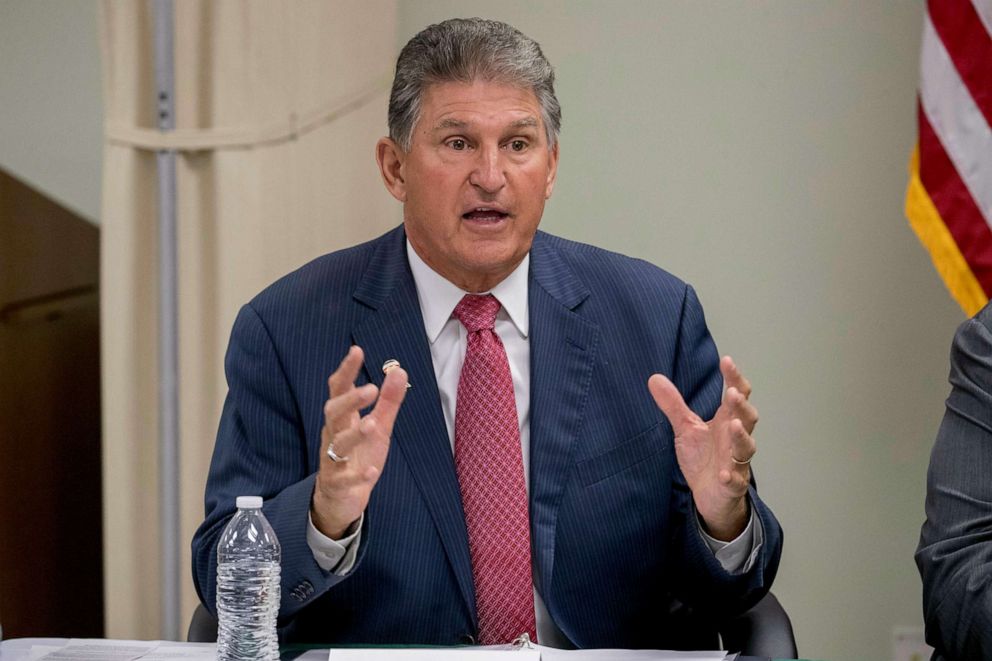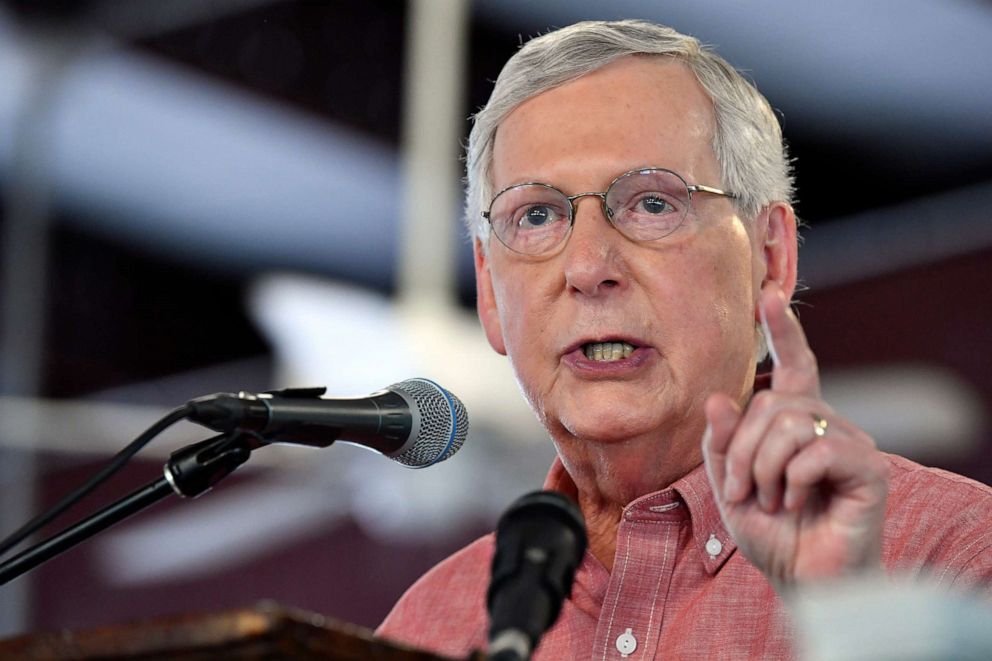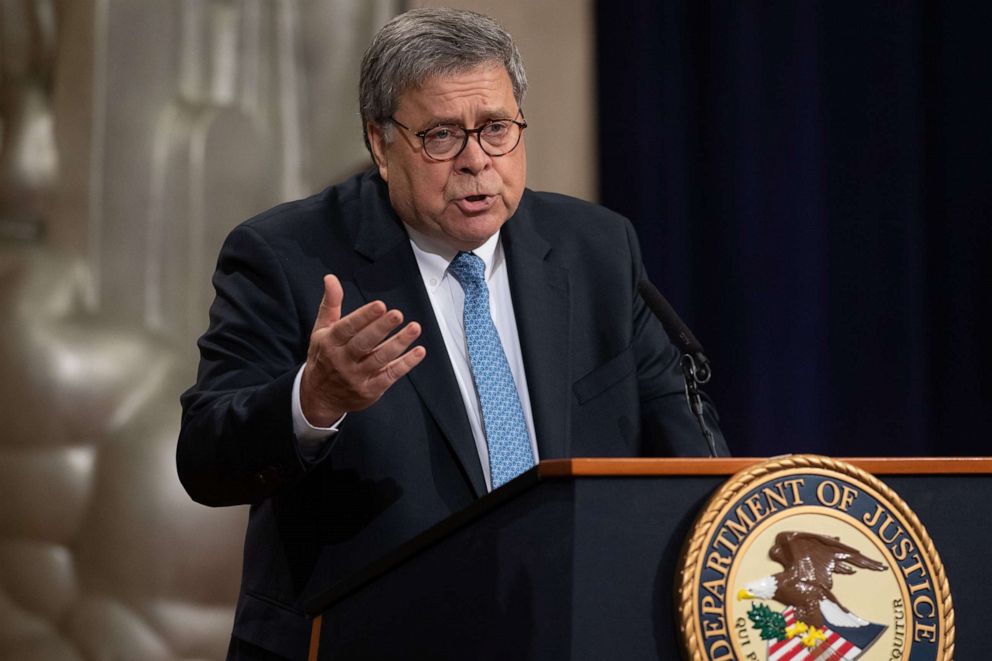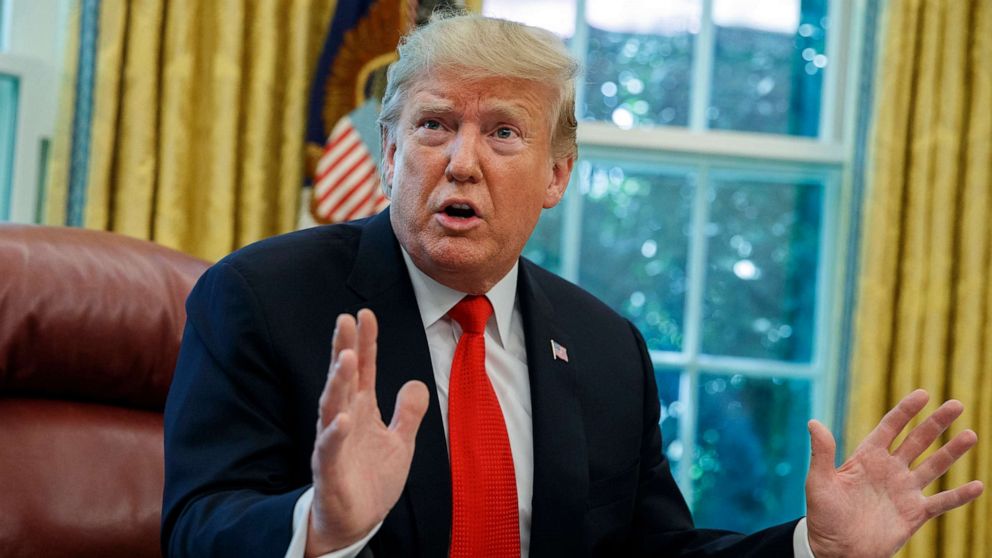Campaign says new gun control measures may pose political problem for Trump: Sources
As President Donald Trump has mulled acting on gun control legislation in the wake of a string of mass shootings, data gathered by the president's campaign showed that supporting any gun control measures would pose a problem for him politically going into the 2020 election season, according to sources familiar with the results.
The data is comprised of campaign polling conducted before recent back-to-back mass shootings in Dayton, Ohio, and El Paso, Texas, that left 31 dead -- as well as more recent outreach to his base and independent voters, according to the sources. ABC News has not independently reviewed the data. The sources said it's likely to inform Trump's decision on whether to act on any gun control legislation, despite separate nationwide polling showing widespread public support for tougher gun sale background checks.
The White House requested data from the campaign on how Trump's base and independent voters would react if Trump were to support gun control measures late last month, after the Dayton and El Paso shootings, the sources told ABC News. On Aug. 31, seven more were killed in Texas in a shooting rampage in Odessa.
Though the Trump campaign data suggests gun control measures would be unpopular with Trump's base, the sources said, nationwide polls say the great majority of Americans support stricter background checks. An Aug. 29 Quinnipiac poll showed 93% of registered voters, including 89% of Republicans, support universal background checks.
On Thursday, Trump met with moderate West Virginia Democratic Sen. Joe Manchin at the White House to discuss ongoing efforts to craft a bipartisan gun control bill. They discussed so-called red flag flaws and background checks, but Trump gave Manchin no commitment to back any particular measure, according to a senior Senate aide.

Trump has sent contradictory messages on his stance on gun legislation since the Dayton and El Paso shootings.
On Aug. 9, Trump said he supported "very meaningful background checks." But opposition from the N.R.A. stalled momentum on potential proposals from the White House.
In an Aug. 21 conversation with Trump, NRA head Wayne LaPierre issued caution on new gun control measures, warning that the president's core supporters didn't want them. Trump later said in the Oval Office "we have strong background checks now."
“But we have sort of missing areas and areas that don't complete the whole circle. And we're looking at different things and I have to tell you it's a mental problem, I said it 100 times, it's not the gun that pulls the trigger, it's the person that pulls the trigger.”
On Capitol Hill, two House-passed two background check bills have languished in the Senate since February. One would require universal background checks for most gun purchases, including for sales of firearms at gun shows or through classified ads. The other bill closes so the so-called "Charleston Loophole," which allows the sale of a firearm to proceed if a background check is not completed in three days. That bill increases the background check window to 10 days.
The House Judiciary Committee intends to mark up five additional gun control bills on Tuesday, according to sources.
Senate Majority Leader Mitch McConnell has said he will consider a vote on gun legislation only if it has Trump's backing.
"I said several weeks ago that if the president took a position on a bill, so that we knew we would actually be making a law, and not just having serial votes, I’d be happy to put it on the floor,” McConnell said in a radio interview with Hugh Hewitt Tuesday.
McConnell refused to call the Senate back into session from its annual August recess last month to consider gun legislation, despite numerous calls from Democrats to do so. But he suggests he is open to passing legislation in September that has bipartisan and presidential support.
“If the president is in favor of a number of things that he has discussed openly and publicly, and I know that if we pass it, it’ll become law, I’ll put it on the floor," McConnell said.

But it remains unclear what measures, if any, given the campaign data showing gun control legislation is politically problematic, the White House supports.
Following the El Paso and Dayton shootings, Trump announced that he had directed the Department of Justice to draft new legislation "ensuring that those who commit hate crimes and mass murders face the death penalty, and that this capital punishment be delivered quickly, decisively, and without years of needless delay."
Sources familiar with the process told ABC News that the language Trump requested had been provided to the White House two weeks ago. The status of the proposal DOJ sent to the White House remains unclear, but sources say the White House is setting up a working group on guns that includes domestic policy counsel, White House counsel and DOJ representatives.
Attorney General Bill Barr said the proposal would seek to couple mass shooters with those who kill police officers during remarks to a law enforcement group.
"There will be a timetable for judicial proceedings that will allow imposition of any death sentence without undue delay," Barr said. "Punishment must be swift and certain." He said the legislation would be unveiled after Labor Day.

Though there is skepticism among criminologists and those who have studied mass shooters about whether quicker imposition of the death penalty would do anything to deter potential future mass shooters.
Hamline University professor Jillian Peterson, a psychologist and co-founder of The Violence Project, told ABC News that a common profile of mass shooters is they see their attack as a suicidal act.
"I would say one of the biggest findings from our study is that a mass shooting is a suicide," Peterson said, referring to a study of 150 mass shootings between 1966 and 2018. "About 80 percent were actively suicidal before it happened, and there's really only one or two cases in our database where the person actually had an exit plan. The majority of the time, you go in planning to kill yourself or be killed by the police."
It's also unclear how the legislation will address the 29 states where the death penalty is already legal, which includes Texas, Florida and Ohio.
"The DOJ just seems to be concerned more with speeding things up," said Travis Pratt, a criminologist who is currently working on a separate mass shooter study for the National Institute of Justice. "It does, however, present another layer of complexity for this potential policy -- under what conditions is the federal government going to claim jurisdiction over this?"
And if the policy is less about creating a deterrent and more about providing those close to victims an assurance of swift justice, Pratt noted that feelings are typically divided on the death penalty in communities where mass shooters carry out their attacks and survive.
"I would argue that there's considerable variation in how victims feel about this," Pratt said. "That some of them might want closure in that form, some of them might care less about that closure because executing someone isn't going to bring their loved ones back, so they don't care."




